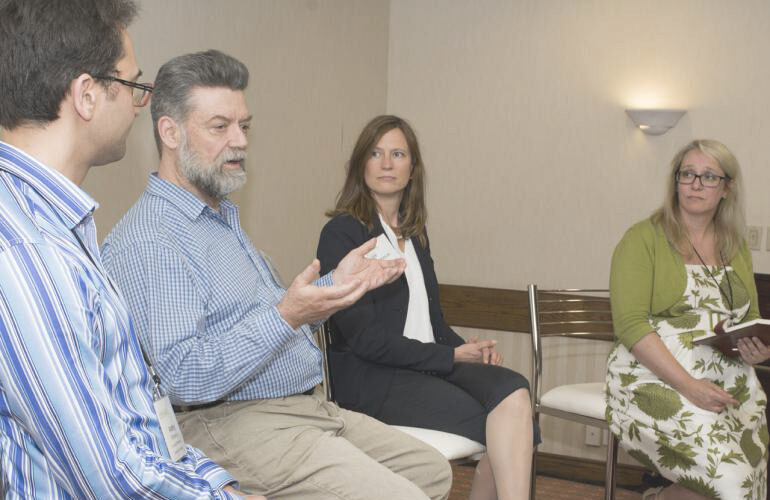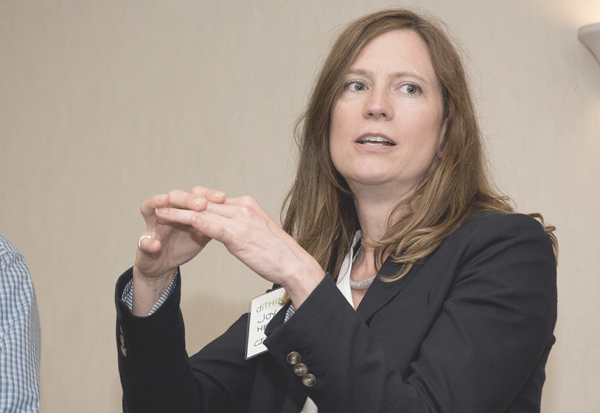During diTHINK, nearly 200 attendees representing Ontario’s research, education and innovation industry gathered to engage in the kind of conversations that can help move Ontario’s innovation economy forward. From customized learning to connected communities to advanced computing, here’s what we learned.
What does the future economy look like when communities are increasingly connected to each other by digital infrastructure?
In the big data conversation, where personal data is widely collected through technology like wearables, GPS devices, and online identities, data collection and distribution are in question. How effective are public consent and opt-in/out models? How do we alleviate the public’s fear and mistrust of using personal data? The discussion had us imagining a future when individuals can manage their own data.
Moderated by Karen Dubeau, panellists Henrik Bechmann, Joy Henderson, and Andriy Miranskyy agreed that big data management and security is a work in progress. However, the goal is for people to effectively aggregate data in order to gain meaningful, big-picture insights – rather than inspect personal data on a granular level. At the same time, we need to be wary of data lakes; being inundated with too much data – how can we intelligently make sense of the numerous data sets before us?
There was also discussion around the dynamic and social nature of technology: we need to collaborate in order to ensure that no one is left behind. For example, having digital ID cards as Joy Henderson describes in her Cityzeen projects, means that the isolated pockets of innovation currently sprinkled throughout cities can be consolidated.
Digging deeper into the notion of “open data” also brought up considerations of accessibility. Namely, can the open data movement work in the North as well as it does in the rest of Ontario? Meaningful, open datasets that reveal community vital signs are valuable for both urban and rural areas. Furthermore, while municipalities may have the technology to facilitate collection of open data, policy and regulation can be further developed to make big data more widely available.
When the audience asked about the role of government to devise big data solutions, panellists remarked that a collaborative effort between businesses and government is essential. Also, the Canadian reality of a consolidated effort is particularly challenging when coordinating efforts between provincial and municipal levels – there is a need to create more links.
Panellists ended the session by sharing what makes them most excited about the future: the potential to use data for civic good and make data available to everyone, while having the capability to share data points within a community.


